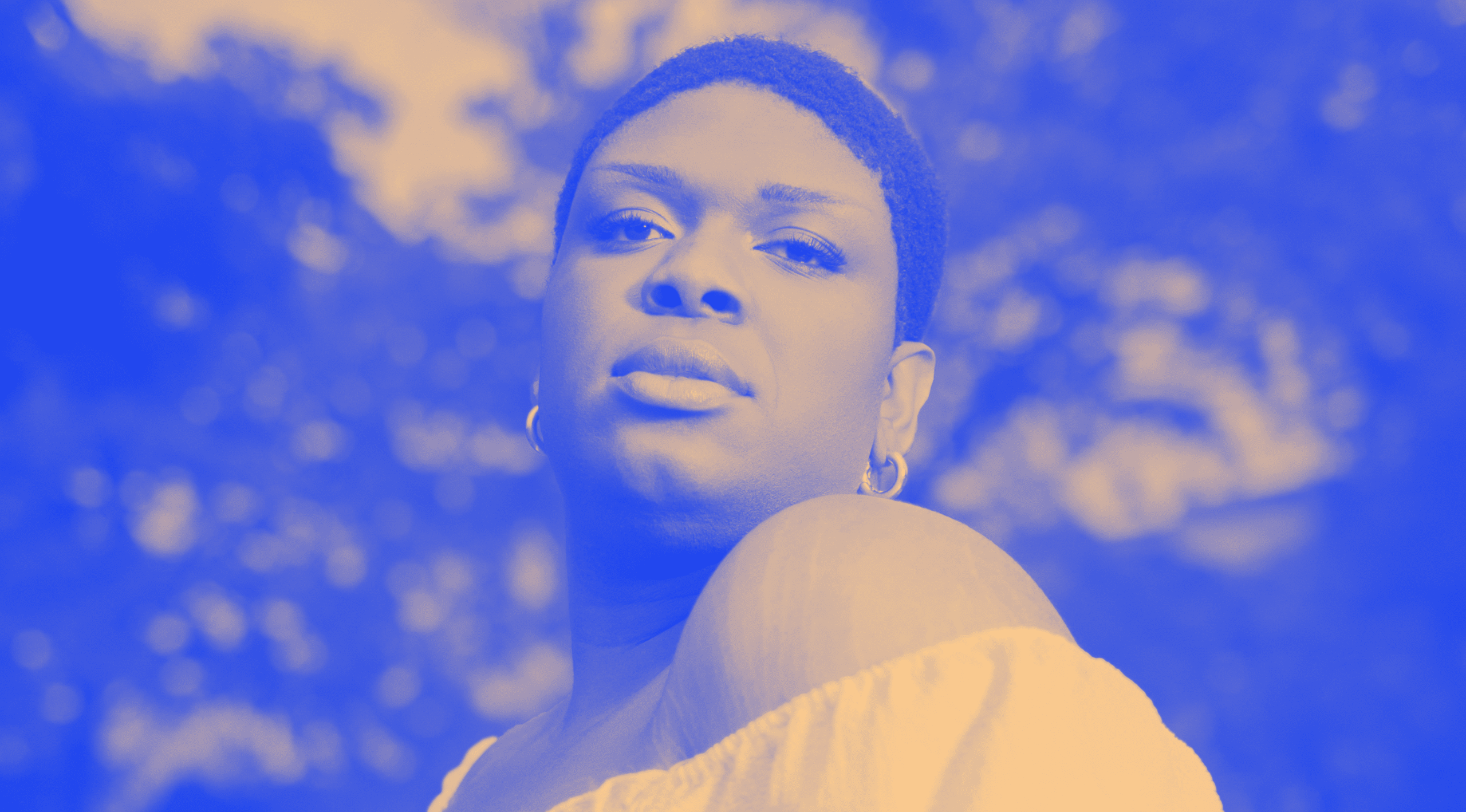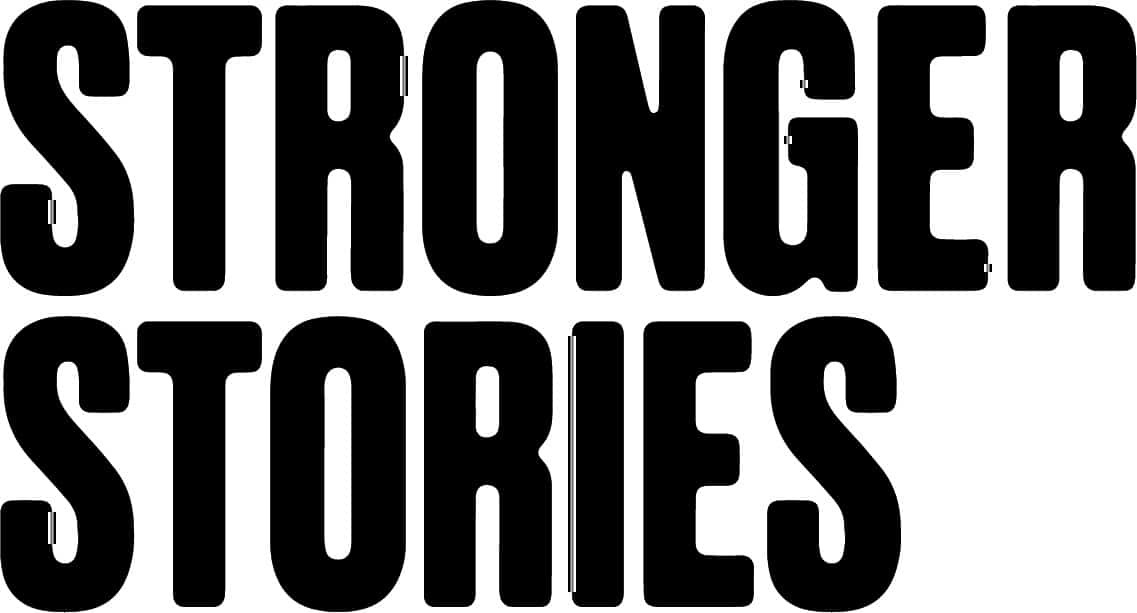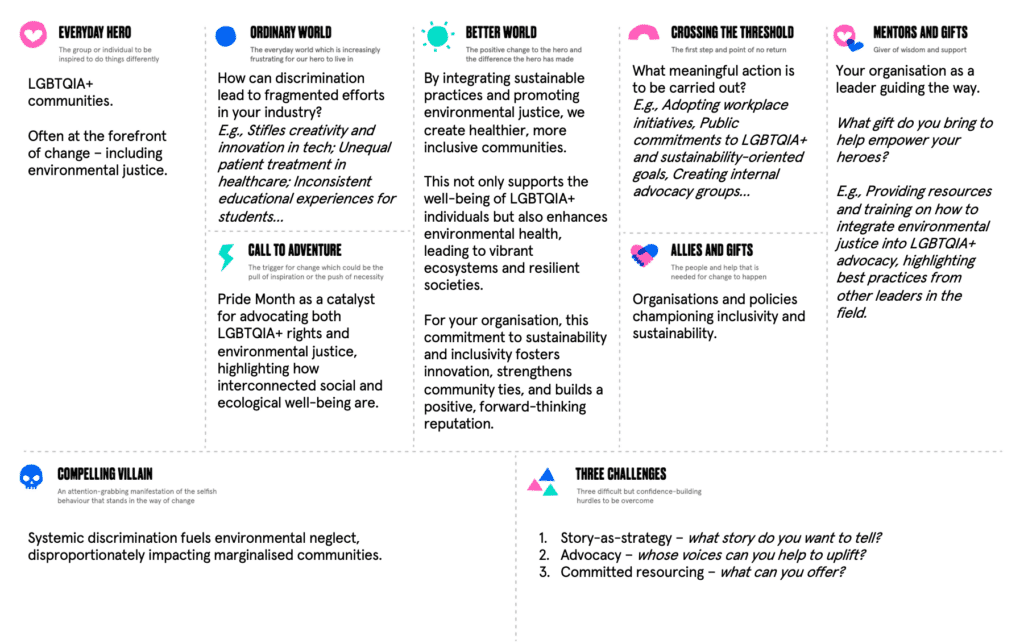
Why Pride and Planet have always been linked
- Written by Aphie
“Supporting LGBTQ people means recognizing our full humanity, including the ability to live on a healthy planet.”
Tyrone Hanley, NCLR Director of Racial and Economic Justice Initiatives
Cultural and institutional discrimination against LGBTQIA+ communities is more than a societal issue; it’s a root cause of systemic failures, and for businesses striving for net zero, understanding this link is crucial.
Addressing LGBTQIA+ rights is – and always has been – fundamental to achieving sustainability and economic goals, which makes Pride month a powerful ‘call to adventure’ for organisations to showcase how they are building an equitable world through sustainable innovation.
Cultural othering and institutionalised discrimination weakens societal progress through disengagement. Internally, when workplaces marginalise any group, they reduce capacity for diverse, experience-led thinking, creative problem-solving, and ultimately growth.
In its place, inclusive decision-making ensures all voices are heard, leading to a more effective strategy that drives progress on every front, for the benefit of all.
Understanding Intersectionality
In her book ‘It’s Not That Radical’, climate activist Mikaela Loach stresses that climate justice and social justice are inextricably linked, because none of us live single-issue lives.
It was civil rights scholar, Kimberlé Crenshaw, who popularised the term ‘intersectionality’, which emphasises the ways different identities manifest in the social world. Each of us navigates multiple axes of privilege and oppression, including gender, race, dis/ability, socioeconomic status, geography, and LGBTQIA+ identities. This complexity builds resilience and connects those of us on the peripheries, making us stronger together.
Change also comes from the connection of clusters on the periphery – LGBTQIA+ rights, the environmental movement, racial justice, young people’s rights, Indigenous rights, disability rights, and wealth inequity are all interconnected.
But the people who are the most impacted by the climate crisis often contribute the least to it, such as extreme heat and environmental hazards which disproportionately affect LGBTQIA+ communities. Research also shows that gender non-conforming individuals face increased homelessness, and shelters often lack the capacity or safety for these communities.
Leadership from the Margins
Achieving a net-zero planet requires businesses to include and protect these communities as part of their mission.
As the most powerful way to build belief and earn support for new ideas, storytelling is essential to demonstrating your understanding of the challenges facing LGBTQIA+ people and your role in addressing them, internally and externally.
One such example is urban planning which when conducted inclusively in collaboration with communities, effectively reduces carbon emissions while creating safer spaces for the people who live and work there; a highly effective strategy for long-term growth.
To create a compelling narrative around the intersection of social, environmental, and economic justice, you can use the Lean Story Canvas to map out and improve your story.
It will enable you to demonstrate your understanding of LGBTQIA+ communities and their challenges – in a context of discrimination leading to fragmented efforts – revealing your role in overcoming these interlinked environmental and social challenges to build a more inclusive, sustainable, and equitable society.
Addressing LGBTQIA+ discrimination head-on and folding the needs of this community within your strategy-as-story is crucial for building a sustainable and economically viable business.
Although just one month a year, Pride provides you with a powerful opportunity to share how your engagement and support of LGBTQIA+ communities benefits people, and the planet.
The other 11 months are to do the work.
Share:
Grow Your Good Idea Faster
New ideas are precious. Win support by learning how to create and tell a stronger story – sign up to join for free.

Related posts
The Godmother of Environmentalism
Rachel Carson was an American marine biologist, author, and conservationist. Her writings and research were...
Introducing StoryBot, your new AI companion
The lovechild of ChatGPT and our collective storytelling expertise.
How self-love shifted mental health narratives in sport
We’re all working hard to tell better stories about change. Sometimes the best story is not the one that fits...
Learn from the strongest stories about change
Sign up here to receive our monthly newsletter that explores great storytelling about brilliant ideas. Don’t worry you can unsubscribe at any time.
We’re working hard to walk the talk.
We’re proud to be have been awarded The Blueprint and B Corp status in recognition of our work towards creating a better world.


